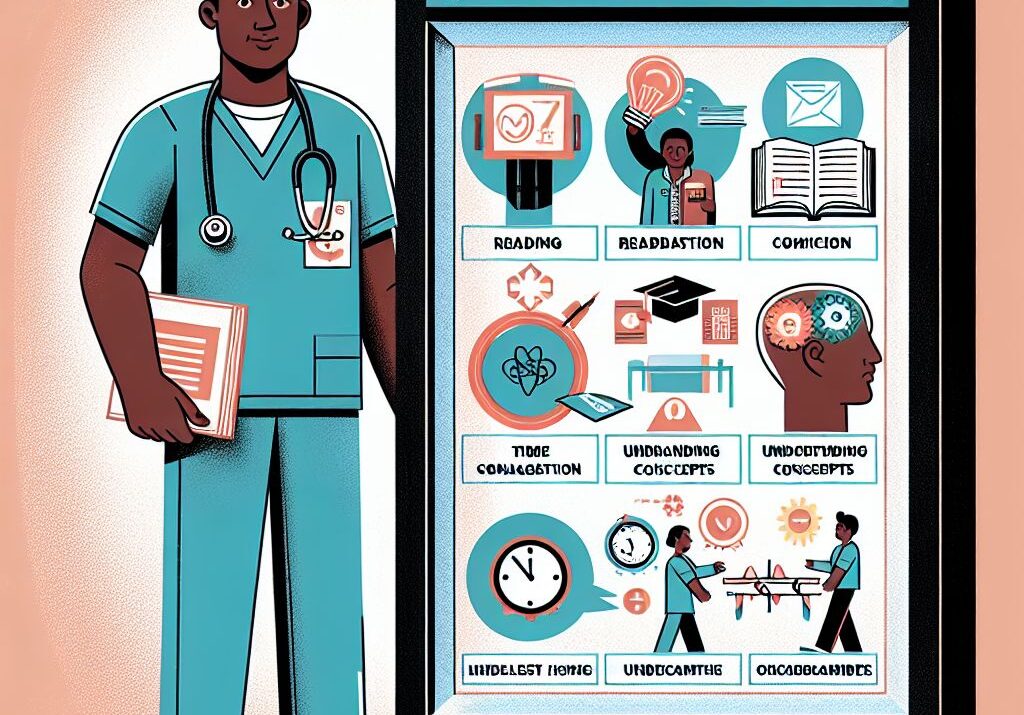Introduction
Passing the National Council Licensure Examination (NCLEX) is a milestone every nursing student must achieve to kick-start their career. The significance of mastering effective study habits cannot be overstated, considering the NCLEX’s comprehensive nature and the pressure it puts on students. Firstly, successful NCLEX preparation enhances confidence, thus reducing exam anxiety. Secondly, it ensures a firm grasp of core nursing principles, which are fundamental to professional practice. Lastly, it increases the likelihood of passing the exam on the first try, saving time, money, and effort.
• Analyzing the NCLEX structure and content is critical to devising a successful study plan.
• Understanding individual learning styles and incorporating them into study routines can significantly enhance comprehension and retention.
Understanding the NCLEX
Comprehending the structure and content of the NCLEX is crucial to efficient studying. The NCLEX tests a wide range of nursing knowledge and skills, focusing on patient needs areas such as safe and effective care environment, health promotion and maintenance, psychosocial integrity, and physiological integrity (NCSBN). By understanding these areas, students can tailor their study plans to address their weaknesses and reinforce their strengths.
Identify Your Learning Style
As reiterated in the article “Practical Strategies For Nursing Students To Succeed In Clinical Rotations”, recognizing one’s learning style is instrumental in effective studying. Some students are visual learners, others auditory, and others kinesthetic. By identifying and leveraging your preferred learning style, you can make study sessions more productive and enjoyable.
Practice with NCLEX-Style Questions
Practicing with NCLEX-style questions is another effective strategy. The article “Essential Study Habits For Passing The Nclex Exam On The First Try” emphasizes the importance of this practice. It allows students to familiarize themselves with the question format, improve their critical thinking skills, and identify areas of weakness for further review.
Regular Review and Consistent Study Schedule
Regular review and maintaining a consistent study schedule are also crucial. According to a study by NCBI, spaced repetition and regular review significantly improve long-term retention of learned material. Drafting a consistent study schedule and adhering to it ensures that no topic is left out and that there’s ample time for review.
Conclusion
To conclude, passing the NCLEX exam on the first try requires a combination of understanding the exam structure, identifying personal learning styles, practicing with NCLEX-style questions, and maintaining a consistent study schedule. In addition to these, seeking help when necessary, remaining focused, and maintaining a positive mindset are also crucial components of successful exam preparation. With these strategies, nursing students can approach the NCLEX with confidence and a high likelihood of success.






